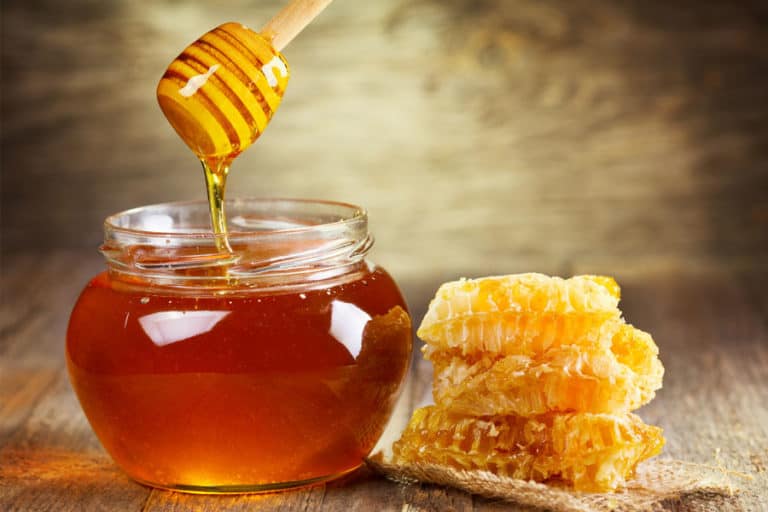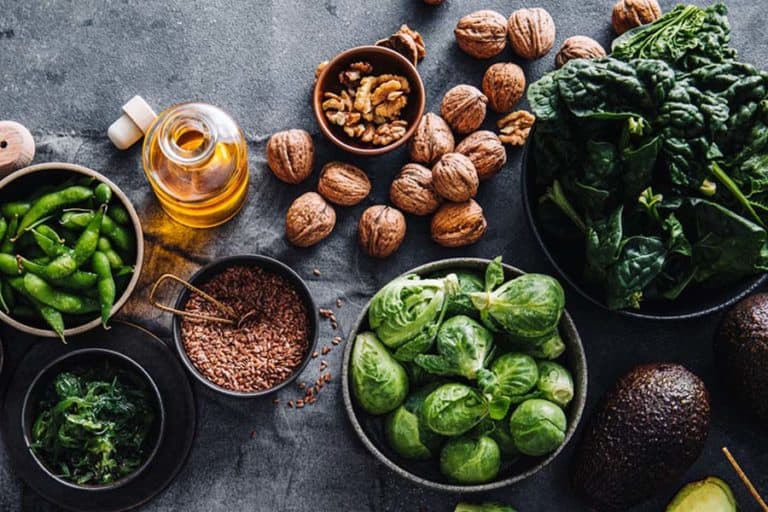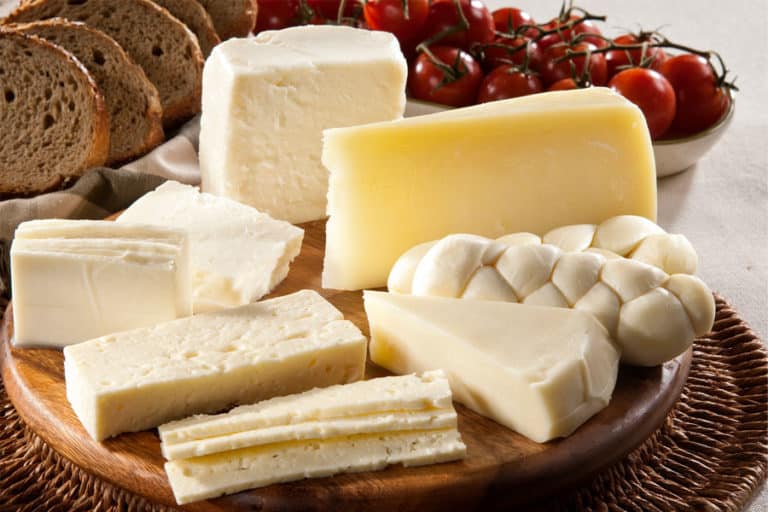Vegan Deficiency: 13 Nutrients Lacking In A Vegan Diet

Common deficiencies | Reasons for vegan deficiency | Tips
According to a 2022 survey, [1]Vegetarian Times: Vegetarianism In America 7.3 million people in the United States are following plant-based diets, out of which nearly 1 million are following a vegan diet.
Although a vegan diet can be incredibly healthy, there is a risk of developing nutrient deficiencies. Some essential nutrients found in animal products are harder to source from plant foods.
However, with a bit of planning, you can fix vegan deficiency concerns. This guide will help you fill the nutritional gaps in your vegan diet and stay healthy.
What are the common vegan deficiencies?
Any diet that eliminates a food group can put people at risk of developing certain nutrient deficiencies. The same holds true for a vegan diet. Here is the list of the most common vegan deficiencies and their symptoms:
1. Vitamin B12
Vitamin B12 [2]ScienceDirect: VITAMIN B12 AND THE NERVOUS SYSTEM plays an important role in the healthy functioning of the nervous system. It is majorly found in animal products such as liver, beef, and dairy products.
An analysis [3]PubMed: Serum concentrations of vitamin B12 and folate in British male omnivores, vegetarians and vegans: results from a cross-sectional analysis of the EPIC-Oxford cohort study of vitamin B12 in omnivores, vegans, and vegetarians has proved that vegans have the highest risk of developing vitamin B12 deficiency.
In addition to vitamin B12, vegans are at risk of developing vitamin B2 (riboflavin) deficiency. The symptoms of vitamin B2 deficiency [4]National Library of Medicine: Riboflavin Deficiency are dermatitis around the mouth, swollen throat, blurred vision, and skin cracks.
- Symptoms of B12 deficiency: Fatigue, weakness, lethargy, dizziness, anemia, sudden weight loss, difficulty balancing, poor concentration, depression, and irritability.
- Vegan sources: Nutritional yeast, fortified foods, and plant-based meat.
2. Iron
Iron is essential for producing red blood cells, which help your body carry oxygen. Iron deficiency is common in vegans because plant-based foods contain non-heme iron.
However, non-heme iron is not as easily absorbed as the heme iron [5]Centers for Disease Control and Prevention: Iron found in red meat, fatty fish, poultry, and eggs. Vegans can include vegan iron-rich foods like legumes in their diet to meet their iron nutritional requirements.
- Symptoms of iron deficiency: Pale and dry skin, fatigue, brittle nails, frequent headache, fatigue, and weakness.
- Vegan sources: Tofu, fortified cereals, beans, lentils, dried fruits, nuts, and seeds.
3. Calcium
Calcium is essential for healthy bones, teeth, and muscle contraction. Vegan diets generally lack calcium because dairy products and salmon are the primary sources of it.
- Symptoms of calcium deficiency: Weak bones, hallucinations, arrhythmia, muscle cramps, hair loss, and increased risk of fractures.
- Vegan sources: Dark green leafy vegetables, broccoli, fortified foods, and vegan dairy alternatives.
4. Vitamin A
Vitamin A is important for good vision, healthy skin, and immune system function. Vegan diets mostly lack vitamin A because it is found predominantly in animal sources such as liver, eggs, and dairy products.
- Symptoms of vitamin A deficiency: Night blindness, low vision, and skin irritation.
- Vegan sources: Carrots, sweet potatoes, spinach, kale, pumpkin, apricots, and butternut squash.
5. Docosahexaenoic acid (Omega-3 DHA)
Docosahexaenoic acid (DHA) is an important omega-3 fatty acid that helps in brain development.
Especially pregnant women [6]National Library of Medicine: Omega-3 Fatty Acids and Pregnancy and children need DHA for healthy development. Vegan diets lack DHA because it is found in fish and fish oils.
- Symptoms of DHA deficiency: Poor cognitive function, depression, difficulty concentrating, poor memory and dry eyes, etc.
- Vegan sources: Walnuts, hemp seeds, chia seeds, and flax seeds.
6. Zinc
Vegan diets are usually low in zinc because it is mostly found in animal products such as oysters, beef, crab, lobster, eggs, and dairy products.
It plays a central role in many metabolic processes, including defense against oxidative stress and DNA damage repair. [7]National Library of Medicine: Zinc Deficiency Affects DNA Damage, Oxidative Stress, Antioxidant Defenses, and DNA Repair in Rats
- Symptoms of zinc deficiency: Loss of appetite, hair loss, diarrhea, and low eyesight.
- Vegan sources: Walnuts, quinoa, chickpeas, and whole grains.
7. Choline
Choline is essential for healthy cell maintenance and support of the nervous system. Vegan diets are usually low in choline because it is found mainly in egg yolk, dairy products, and fish.
- Symptoms of choline deficiency: Increased risk of muscle damage, cancer, anxiety, and restlessness.
- Vegan sources: Tofu, quinoa, soynuts, cruciferous vegetables, and peanuts.
8. Iodine
Iodine is essential for hormonal health. When you intake iodine, the thyroid gland produces several hormones that regulate metabolism and energy production. Iodine deficiency [8]National Library of Medicine: Health Consequences of Iodine Deficiency may also lead to brain damage and mental retardation.
People following vegan and vegetarian diets must consider taking iodine supplements as it is found in animal foods such as fish, dairy, eggs, beef, and chicken.
- Symptoms of iodine deficiency: Constipation, sensitivity to cold, dry skin, muscle weakness, and fatigue.
- Vegan sources: Iodised salt, seaweed, strawberries, kale, spring greens, whole grains, green beans, and potatoes.
9. Vitamin D
Vitamin D plays a major role in regulating the absorption of nutrients like calcium and phosphorus. Vitamin D2 and Vitamin D3 are the two types of Vitamin D.
Although the sun is a good source of Vitamin D, multiple factors, such as latitude and altitude, can affect the body’s ability to synthesize it.
Vegan diets usually lack Vitamin D3, which is found in animal products such as fatty fish and fish liver oils.
- Symptoms of Vitamin D deficiency: Weak bones, muscle pain and tenderness, increased risk of infection, and depression.
- Vegan sources: Mushrooms, fortified milk, and fortified cereals.
10. Protein
Protein is an essential nutrient the body needs to grow, repair, and maintain cells. Complete proteins like the ones found in animal products are easily absorbed by the body. In contrast, plant-based foods usually provide incomplete proteins. Thus, vegans must eat high-protein plant foods and healthy vegan protein sources to get enough protein in their diet.
- Symptoms of protein deficiency: Nausea, headache, mood changes, low blood pressure, diarrhea, and frequent food cravings.
- Vegan sources: Nuts and seeds, legumes, tofu, edamame, and quinoa.
11. Creatine
Creatine is an important compound in animal tissues, particularly in the muscles. It helps to produce energy and facilitates muscle recovery after a workout. Vegan diets lack creatine because it is mainly found in animal sources such as red meat and fish.
- Symptoms of creatine deficiency: Muscle weakness, seizures, behavior disorders, and gastrointestinal issues.
- Vegan sources: Pumpkin seeds, almonds, walnuts, peas, and sesame seeds.
12. Carnitine
Carnitine [9]National Institutes of Health: Carnitine is an amino acid that plays a crucial role in energy production. It helps the body convert fat into energy and is found mainly in animal-based foods like meat, fish, dairy products, and eggs.
- Symptoms of carnitine deficiency: Fatigue, muscle weakness, low blood sugar, and irritability.
- Vegan sources: Avocado, asparagus, and whole wheat bread.
13. Taurine
Taurine is an amino acid that serves a vital role in the functioning of the central nervous system. Taurine [10]National Library of Medicine: Review: Taurine: A “very essential” amino acid is commonly found in animal foods such as tuna, chicken, octopus, and beef.
A taurine deficiency is linked with renal dysfunction (kidney failure) and retinal neuron damage.
- Symptoms of taurine deficiency: Hyperthyroidism, anxiety, impaired vision, and more frequent urinating.
- Vegan sources: seaweed and dietary supplements.
Reasons behind vegan deficiency
There are various reasons why a vegan diet might be low in nutrients. Here is the list of all possible reasons:
1. Elimination of animal products
A plant-based diet eliminates animal products, including meat, fish, dairy, and eggs. These foods contain essential components of a balanced diet, such as protein, iron, and vitamin B12, that are difficult to get from plant-based sources.
2. Poorly planned diet
Poor planning turns any restrictive diet into a deficient one. The same holds true for a vegan diet. Studies [11]PubMed: Nutrient status and growth in vegan children indicate that a poorly planned vegan diet can cause nutrient deficiencies. However, with careful planning, vegan diets can meet all your nutrient needs.
3. Poor nutrient absorption
Vegetarian and vegan diets include foods like nuts, legumes, and whole grains. These foods contain antinutrients [12]Harvard T.H. Chan: Are Anti-Nutrients Harmful? such as lectins, oxalates, saponins, and phytates, which can reduce the absorption of key vitamins and minerals like zinc, calcium, iron, zinc, etc.
Quick tips to avoid nutrient deficiencies on a vegan diet
Here are a few tips to help you avoid nutritional deficiencies on a plant-based diet.
1. Avoid processed foods
Highly processed vegan foods often are low in nutrients. This is because processing can destroy vitamins and minerals. Avoid processed vegan foods like chips, cookies, and frozen meals, instead, include healthy vegan foods.
2. Plan your diet carefully
Make sure to include a variety of nutrient-rich foods in your diet. Include fruits, vegetables, legumes, nuts, and whole grains in your meals.
3. Take vegan supplements
Taking a vegan supplement or multivitamin can help ensure you get enough vitamins and minerals. Vegan supplements also provide essential fatty acids, which vegans may be lacking in their diets. Talk to your healthcare provider before starting any supplements.
4. Get tested for nutrient deficiencies
If you follow a vegan or vegetarian diet, it is important to get tested for nutrient deficiencies. This will help you identify any nutrients that you may be lacking. Your doctor can recommend dietary supplements if needed. Here is a list of lab tests doctors may suggest to identify deficiencies:
- Nutrient panel blood test
- Vegan and vegetarian diet profile blood test
- Vitamin B12 test
- Omega-3 index test
- Lipid profile test
- 25-hydroxy vitamins D test
Conclusion
Avoiding nutritional inadequacies and deficiencies can be challenging while on a vegan diet. It is, nevertheless, possible to have a balanced, varied, and nutritionally adequate diet with the right knowledge and planning.
Identifying and addressing vegan deficiencies early can help prevent chronic health conditions. Therefore, those who follow a vegan diet should get tested regularly for nutrient deficiencies and supplement as needed.
Lastly, always consult your healthcare provider before taking any dietary supplements.
References
| ↑1 | Vegetarian Times: Vegetarianism In America |
|---|---|
| ↑2 | ScienceDirect: VITAMIN B12 AND THE NERVOUS SYSTEM |
| ↑3 | PubMed: Serum concentrations of vitamin B12 and folate in British male omnivores, vegetarians and vegans: results from a cross-sectional analysis of the EPIC-Oxford cohort study |
| ↑4 | National Library of Medicine: Riboflavin Deficiency |
| ↑5 | Centers for Disease Control and Prevention: Iron |
| ↑6 | National Library of Medicine: Omega-3 Fatty Acids and Pregnancy |
| ↑7 | National Library of Medicine: Zinc Deficiency Affects DNA Damage, Oxidative Stress, Antioxidant Defenses, and DNA Repair in Rats |
| ↑8 | National Library of Medicine: Health Consequences of Iodine Deficiency |
| ↑9 | National Institutes of Health: Carnitine |
| ↑10 | National Library of Medicine: Review: Taurine: A “very essential” amino acid |
| ↑11 | PubMed: Nutrient status and growth in vegan children |
| ↑12 | Harvard T.H. Chan: Are Anti-Nutrients Harmful? |







